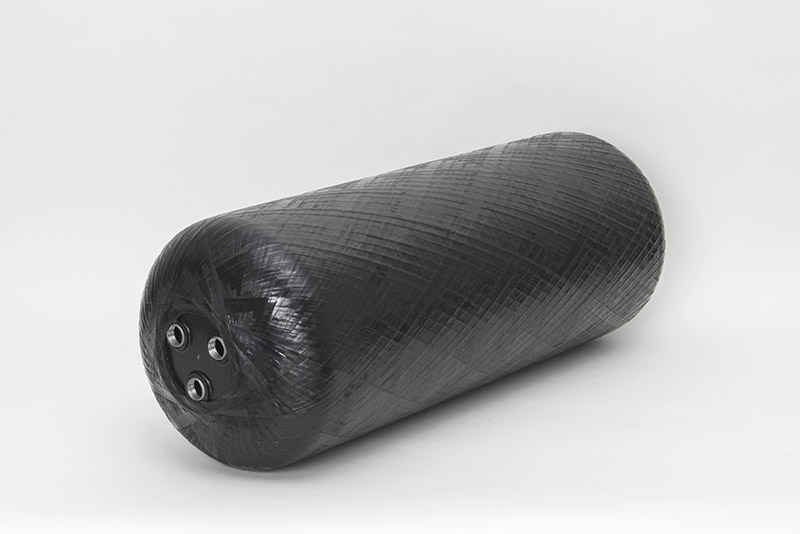Research Projekt "Tankcycling"
Lightweight construction with fibre-reinforced plastics (FRP) is a rapidly growing production sector. The global market for FRP is growing by more than ten percent annually. However, there is a lack of sustainable recycling processes for FRP products. If the plastics are recycled, this not only helps the environment but also reduces material costs.
Current scenarios for recycling at the end of the product life cycle focus primarily on thermoset FRPs. But the components can only be separated from each other destructively after curing, for example by shredding the material or by breaking the compounds using high temperatures and oxygen exclusion, the so-called pyrolysis. Thermoplastic FRPs, on the other hand, are predestined for recycling due to their repeatable formability. If these thermoplastic fibre composites can be processed without losing mechanical and chemical resistance: this reduces material costs and makes FRP material a sustainable material.
Recycling of thermoplastic fiber composites
In the EFRE-Project "Tankcycling", processes for recycling thermoplastic FRPs are being developed and implemented using the example of pressure vessels: The thermoplastic FRPs used in the manufacture of the components are recovered in high quality through recovery and reprocessing processes and made accessible to further manufacturing processes.

Pressure vessel as an example object for recycling thermoplastic FRP
In the course of the project, the Fraunhofer IPT is developing the system and plant technology as well as recycling processes for thermoplastic fibre composites. The aim is for the recycled product to have the same properties as the starting material. This not only reduces the material cost, but also contributes to sustainable production.
Consortium
- Fraunhofer Institute for Production Technology IPT
- BPW Group (HBN-Teknik A/S, associated partner), Denmark
Funding information
- Lead MarketAgency.NRW, EnergyEnvironmentEconomy.NRW
This project received funding from the EFRE.NRW funding program in the European Union's lead market EnergyEnvironment-Economy.NRW.
Funding code EFRE-0801545